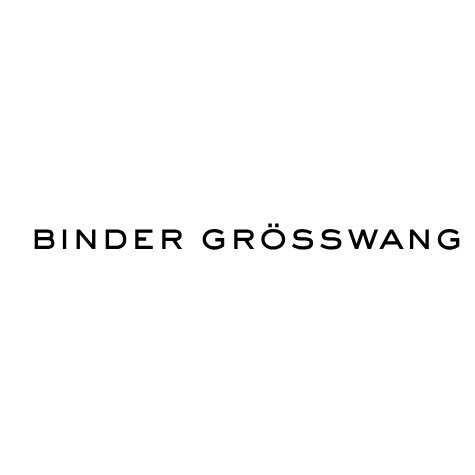Best Sanctions & Export Controls Lawyers in Innsbruck
Share your needs with us, get contacted by law firms.
Free. Takes 2 min.
List of the best lawyers in Innsbruck, Austria
About Sanctions & Export Controls Law in Innsbruck, Austria
Sanctions and export controls are legal measures aimed at regulating the trade and movement of certain goods, services, and technologies across borders. In Innsbruck, Austria, these laws are influenced by European Union regulations as well as national Austrian legislation. Sanctions can be imposed on countries, organizations, or individuals for reasons such as national security, foreign policy, or to uphold international peace. Export controls, on the other hand, govern the exportation or transfer of sensitive items, especially those with potential military use or dual use (civilian and military).
Both sanctions and export controls impact a wide range of businesses and individuals in Innsbruck, especially those involved in international trade, logistics, finance, and technology. Complying with these rules is important to avoid severe penalties, including fines and criminal prosecution.
Why You May Need a Lawyer
Engaging with sanctions and export control matters can be complex and fraught with legal risk. Here are common scenarios where professional legal help can be valuable:
- Your business exports goods, software, or technology outside Austria and is unsure about compliance requirements.
- You are entering into contracts with foreign partners from countries subject to EU or Austrian sanctions.
- The government has started an investigation or audit related to your trade activities.
- Your goods were detained at customs in Innsbruck or you received notice of possible export violations.
- You are planning to expand operations internationally and need due diligence on customers or suppliers for sanction compliance.
- You have received a formal notice or penalty related to sanctions or export controls.
- You want to implement robust corporate compliance programs to prevent accidental breaches of the law.
A lawyer with expertise in this field can help you navigate the complex regulatory environment, mitigate risks, handle government communications, and ensure that your business practices meet all legal requirements.
Local Laws Overview
Austrian law, as applied in Innsbruck, is closely aligned with European Union legislation on sanctions and export controls. Key points include:
- The Federal Law on the Export of Goods (Außenhandelsgesetz) governs Austrian export controls, often referencing the EU Dual Use Regulation for sensitive technologies and items.
- EU sanctions take direct effect in Austria and cover financial transactions, trade bans, asset freezes, travel restrictions, and arms embargoes.
- Exporters must check both product classifications and the end users to determine if a license or export ban applies.
- There are reporting and documentation obligations for certain types of goods, particularly when exporting to countries outside the EU.
- The Ministry of Digital and Economic Affairs (BMDW) and customs authorities enforce export control laws and sanctions. Non-compliance can result in confiscation of goods, fines, and even imprisonment.
- There are special rules for items with dual use, meaning they have both civilian and military applications, as well as for controlled technologies, chemicals, and military equipment.
Frequently Asked Questions
What are sanctions and export controls?
Sanctions are restrictions imposed by governments or international bodies to influence behavior by limiting trade, financial transactions, or movement of goods and people. Export controls are regulations that limit the export of certain goods, services, and technologies for reasons such as security or compliance with international agreements.
Who is subject to sanctions and export control laws in Innsbruck?
Any person, business, or organization that exports goods, technology, or services from Austria, or conducts international financial transactions, can be subject to these laws. This includes those involved in trade, logistics, finance, and manufacturing.
What happens if I fail to comply with export control laws?
Non-compliance can lead to administrative and criminal penalties, including fines, loss of export privileges, confiscation of goods, and possible imprisonment. It can also damage your business reputation.
How do I know if my product is subject to controls?
Products may be listed in the EU Dual Use Regulation annex or in Austria's national export control lists. Commonly controlled items include electronics, software, chemicals, and goods with military or dual use. Legal advice or a customs consultant can help with product classification.
Do all sanctions apply to Austrian businesses?
Austrian businesses must comply with all EU-imposed sanctions and any additional Austrian national sanctions. If doing business internationally, it may also be necessary to consider other countries’ sanctions that claim extraterritorial reach.
Do I need an export license for every shipment?
Not every shipment requires a license. Licensing requirements depend on the nature of the product, destination, end user, and intended use. Some goods are subject to general licenses while others require individual case-by-case approval.
Can I do business with people or companies in sanctioned countries?
Generally, doing business with individuals or entities in countries subject to EU or Austrian sanctions is not allowed unless specifically authorized. Some sanctions target only certain sectors, products, or persons.
How long does it take to obtain an export license?
Processing times vary depending on the complexity of the application and the product concerned. It can take a few weeks to several months. Early preparation is advised.
What should I do if my goods are detained at customs?
Contact a lawyer or customs consultant immediately. Detentions can result from incorrect classification, improper documentation, unanswered questions about end use, or suspected violations of sanctions.
What is a compliance program and why is it important?
A compliance program is an internal set of policies and procedures for ensuring that a business follows sanctions and export control laws. It reduces the risk of accidental violations, demonstrates due diligence, and can be a mitigating factor in enforcement actions.
Additional Resources
Several organizations and government bodies provide guidance on sanctions and export controls in Innsbruck, Austria:
- Federal Ministry for Digital and Economic Affairs (BMDW) - Responsible for export licensing and compliance information.
- Austrian Customs Authority - Provides guidance on customs procedures and controlled goods.
- Chamber of Commerce Tyrol - Offers support for businesses with trade compliance questions.
- European Commission - Publishes up to date regulations and sanction lists applicable in Austria.
- Local law firms specializing in international trade and export control law.
Next Steps
If you have questions or concerns about sanctions and export controls in Innsbruck, Austria, consider the following steps:
- Assess whether your business activities involve any cross border transactions, sensitive goods, technologies, or high risk countries.
- Gather documentation related to your products, customers, and business operations for review.
- Consult an experienced lawyer in sanctions and export control law. They can evaluate your situation, provide practical advice, and represent you before governmental authorities if necessary.
- If necessary, reach out to your local Chamber of Commerce for general guidance and referrals to specialists.
- Consider proactively implementing a compliance program to reduce future risk and improve regulatory relationships.
Early legal advice is key to avoiding costly mistakes or enforcement actions.
Lawzana helps you find the best lawyers and law firms in Innsbruck through a curated and pre-screened list of qualified legal professionals. Our platform offers rankings and detailed profiles of attorneys and law firms, allowing you to compare based on practice areas, including Sanctions & Export Controls, experience, and client feedback.
Each profile includes a description of the firm's areas of practice, client reviews, team members and partners, year of establishment, spoken languages, office locations, contact information, social media presence, and any published articles or resources. Most firms on our platform speak English and are experienced in both local and international legal matters.
Get a quote from top-rated law firms in Innsbruck, Austria — quickly, securely, and without unnecessary hassle.
Disclaimer:
The information provided on this page is for general informational purposes only and does not constitute legal advice. While we strive to ensure the accuracy and relevance of the content, legal information may change over time, and interpretations of the law can vary. You should always consult with a qualified legal professional for advice specific to your situation.
We disclaim all liability for actions taken or not taken based on the content of this page. If you believe any information is incorrect or outdated, please contact us, and we will review and update it where appropriate.











